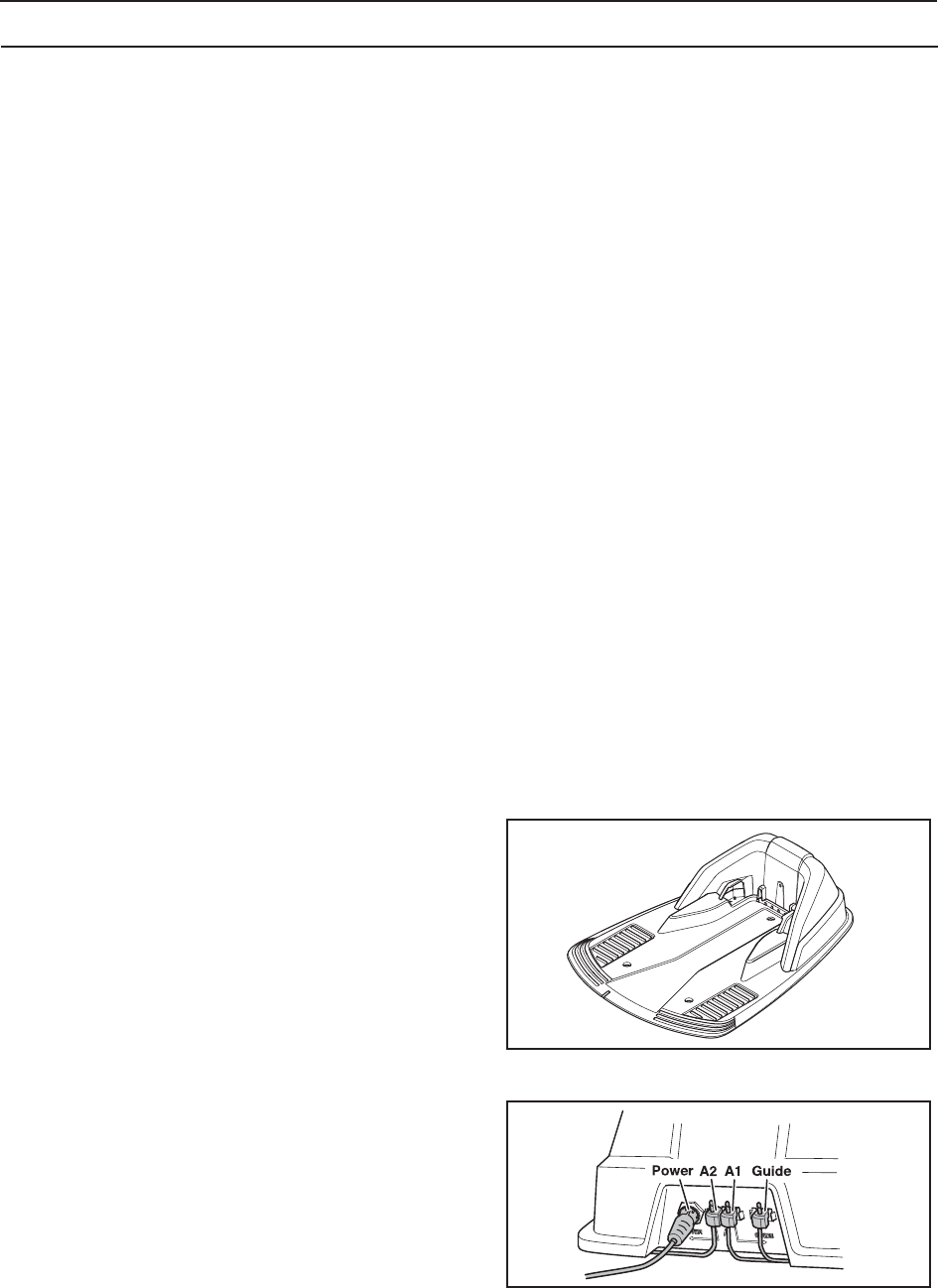
English - 65
9. TROUBLE SHOOTING
9.4 Finding breaks in the loop wire
Breaks in the loop wire are usually the result of
unconscious physical damage to the cable such as
when gardening with a shovel. In countries with ground
frost, even sharp stones that move in the ground can
damage the wire. Breaks can also be due to high
tension in the wire during installation.
Mowing the grass too low right after the installation can
damage cable insulation. Certain damage to the
insulation may not cause disruptions until several
weeks or months later. To avoid this, always select the
maximum cutting height the first weeks after
installation and then lower the height one step at a time
every second week until the desired cutting height has
been reached.
A defective splicing of the loop cable can also lead to
disruptions first several weeks after the splice was
formed. A faulty splice can, for example, be the result
of the original coupler not being pressed together hard
enough with a pair of pliers, or a coupler of lower
quality than original coupler has been used. Please
first check all known splices before further
troubleshooting is done.
A wire break can be located by gradually halving the
distance of the loop where the break may have
occurred until there is only a very short section of the
wire left.
1. Make sure the indicator lamp in the charging
station flashes blue, which indicates a break in
the boundary loop. See 9.2 Indicator lamp in the
charging station on page 62.
2. Check that the boundary wire connections to the
charging station are properly connected and not
damaged. Check that the indicator lamp in the
charging station is still flashing blue.


















